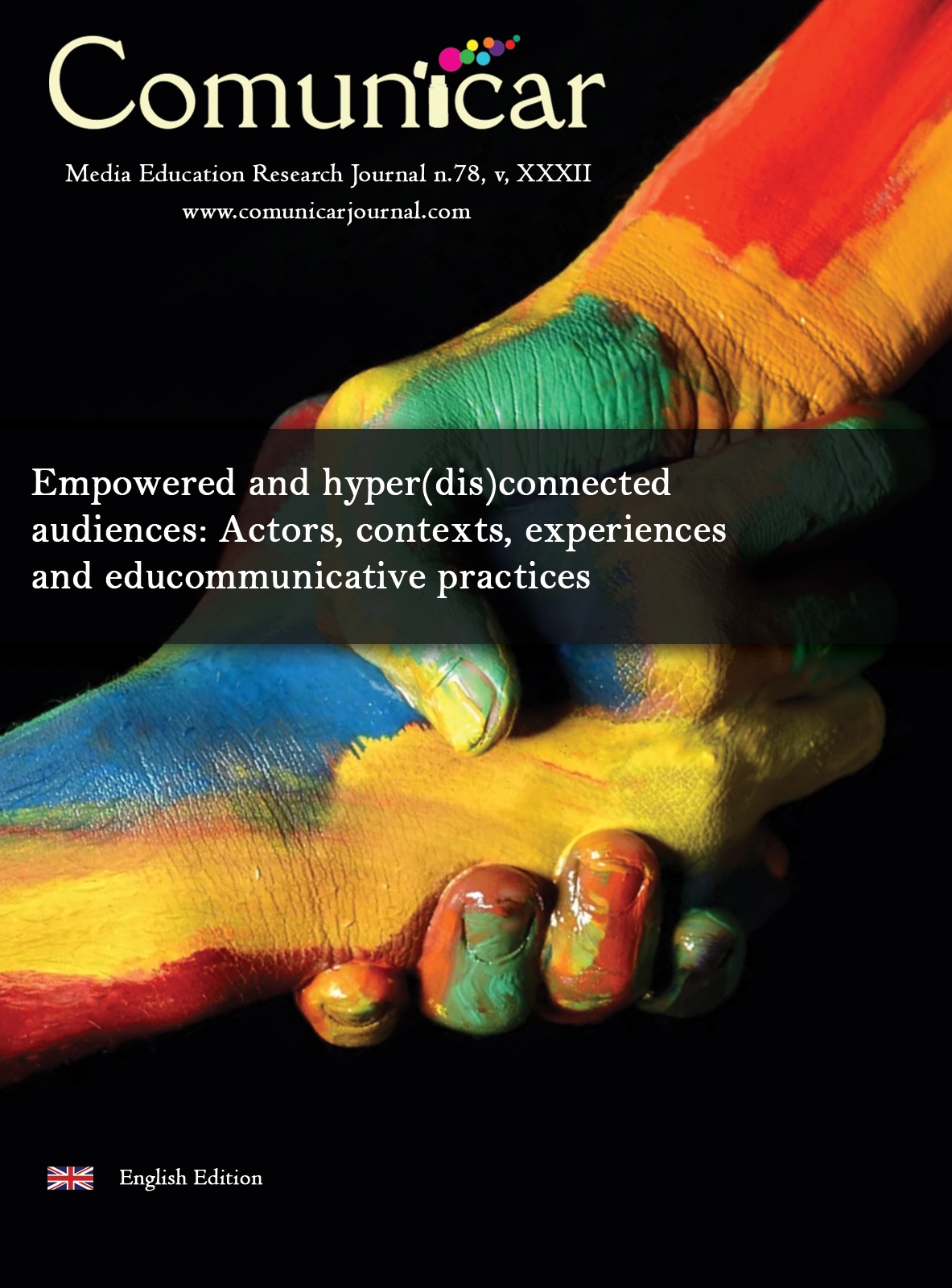教师对COVID-19后媒体教育关键议程的看法。拉丁美洲的比较研究
IF 5.1
1区 文学
Q1 COMMUNICATION
引用次数: 12
摘要
拉丁美洲的新冠疫情迫使人们从面对面的教育模式过渡到受紧急情况、技术不稳定和缺乏规划影响的远程模式。这增加了该地区对媒体素养的需求。在这方面,分析了发生的变化,以便从教师的角度提出一项关键议程。首先,对官方消息来源进行了桌面研究,以了解正在研究的四个国家:阿根廷、厄瓜多尔、智利和秘鲁的战略。第二,与公立和私立机构的小学教师一起举办了八个重点小组,了解他们对自己和学生媒体能力的看法,疫情对他们的做法和需求的影响,以及这场危机中正在出现的挑战。结果从媒体素养的角度阐明了相关信息和通信技术培训的必要性,以及解决连通性差距、缺乏适当环境和工作负担过重的战略。这项工作讨论了每个国家的具体成果以及每种情况下的差异和需求,作为对制定媒体教育关键议程的贡献。由于紧急情况、技术不稳定和缺乏规划,拉丁美洲新冠疫情迫使人们从面对面的教育模式转变为远程教育模式。这加剧了该地区对媒体教育的需求。在这方面,从教师的角度分析了为提出关键议程而发生的变化。首先,对官方消息来源进行了案头审查,以了解阿根廷、厄瓜多尔、智利和秘鲁这四个研究国家的战略。第二,与公立和私立机构的小学教师举行了八次重点小组会议,以了解他们对自己和学生媒体能力的看法,这一流行病对他们的做法和需求的影响,以及这场危机中出现的挑战。结果表明,需要在信息和通信技术管理方面进行相关培训,以及解决连通性差距、缺乏适当环境和工作负担过重的战略。本文讨论了各国的具体结果、不同背景下的差异和需求,作为对制定媒体教育关键议程的贡献。本文章由计算机程序翻译,如有差异,请以英文原文为准。
Teachers' perspectives for a critical agenda in media education post COVID-19. A comparative study in Latin America
The COVID-19 pandemic in Latin America forced a transition from a face-to-face educational model to a distance model affected by emergencies, technological precariousness, and lack of planning. This has heightened the need for media literacy in the region. In this context, the changes that have occurred were analyzed in order to propose a critical agenda from the perspective of teachers. First, a desk research of official sources was carried out to learn about the strategies of the four countries under study: Argentina, Ecuador, Chile, and Peru. Secondly, eight focus groups were conducted with primary school teachers from public and private institutions to learn about their perception of their own and their students' media competencies, the impact of the pandemic on their practices and needs, and the emerging challenges in this crisis. The results shed light on the need for relevant ICT training from a media literacy perspective, and strategies to address connectivity gaps, lack of adequate environments and work overload. The specific results per country and the differences and demands of each context are discussed in this work as contributions to the development of a critical agenda in media education.
La pandemia causada por la COVID-19 en América Latina obligó a transitar de un modelo educativo presencial a uno a distancia atravesado por la emergencia, las precariedades tecnológicas y la falta de planificación. Esto ha agudizado las necesidades de educación mediática en la región. En ese contexto, se analizó los cambios ocurridos para proponer una agenda crítica desde la perspectiva de los docentes. En primer lugar, se realizó una revisión documental de fuentes oficiales para conocer las estrategias de los cuatro países de estudio: Argentina, Ecuador, Chile y Perú. En segundo lugar, se llevaron a cabo ocho grupos focales con docentes de primaria de instituciones públicas y privadas para conocer su percepción sobre sus competencias mediáticas y las de sus estudiantes, el impacto de la pandemia en sus prácticas y necesidades, y los retos emergentes en esta crisis. Los resultados apuntan a la necesidad de capacitaciones pertinentes en el manejo de las TIC, así como estrategias que atiendan las brechas de conectividad, la falta de ambientes adecuados y la sobrecarga laboral. Los resultados específicos por país, las diferencias y demandas propias de cada contexto, se discuten en este trabajo como aportes al desarrollo de una agenda crítica en educación mediática.
求助全文
通过发布文献求助,成功后即可免费获取论文全文。
去求助
来源期刊

Comunicar
Multiple-
CiteScore
10.10
自引率
5.40%
发文量
40
审稿时长
20 weeks
期刊介绍:
Comunicar specialized in educommunication: communication and education, ICT, audiences, new languages...; monographs specialized in current issues. Double format: printed and online; digitally, accessible in full text, free of charge, for the entire scientific community and researchers around the world. Coeditions printed in Spanish and English for the whole world. Published by Oxbridge Publishing House which collaborates with many international centres and universities.
 求助内容:
求助内容: 应助结果提醒方式:
应助结果提醒方式:


